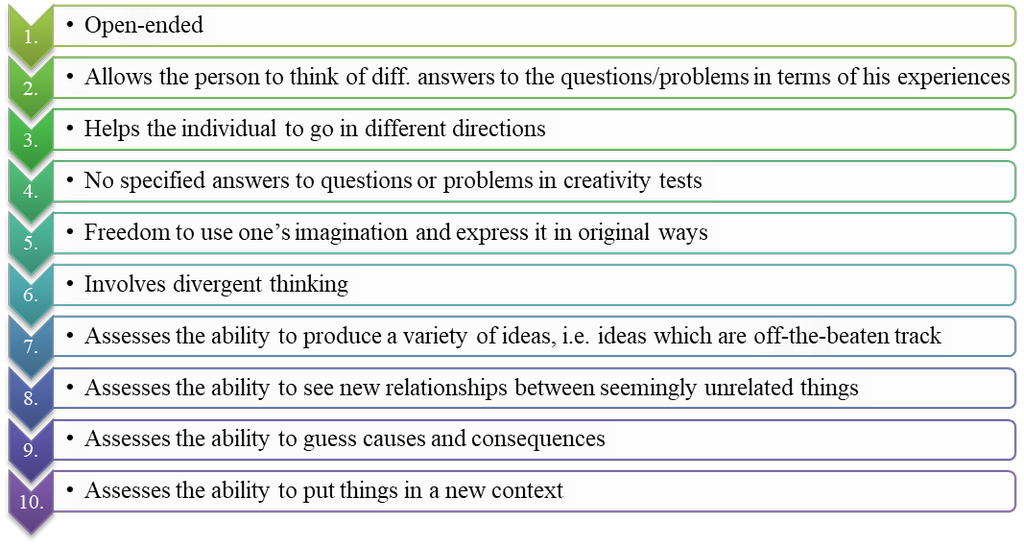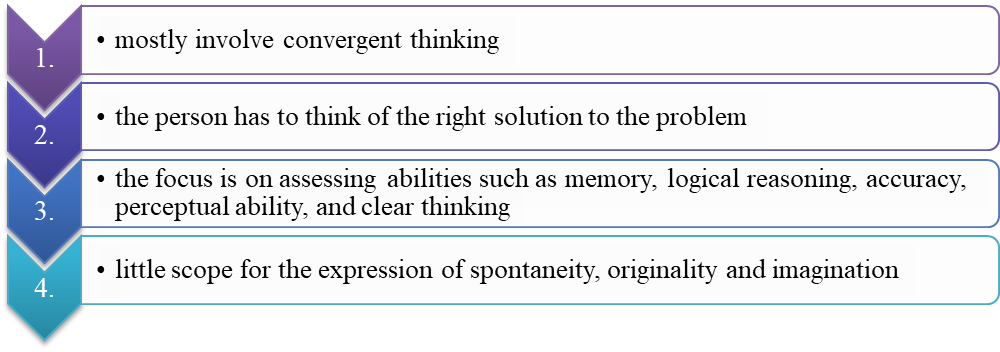- Books Name
- Psychology Book Class-12
- Publication
- PathSet Publications
- Course
- CBSE Class 12
- Subject
- Psychology
Creativity
- Creativity is the ability to produce ideas, objects, or problem solutions that are novel, appropriate and useful.
- Manifestations of creativity can be observed in:
- a novel solution to a problem
- an invention
- composition of a poem or a painting
- new chemical process
- an innovation in law
- a breakthrough in preventing a disease, etc
- One common element among these is the production of something new and unique.
- Creativity is not just limited to a selected few — the artist, the scientist, the poet or the inventor. An ordinary individual who is engaged in simple occupations like pottery, carpentry, cooking, etc. can also be creative.
- Individuals vary in terms of the level and the areas in which they exhibit creativity and that all may not be operating at the same level.
- Another level of creativity is working on what has already been established earlier by way of modifications, by putting things in new perspectives or to new use.
- Children express creativity mostly through physical activities and in non-verbal ways.
- Creativity is determined by both heredity and environment. Limits of the creative potential are set by heredity, and environmental factors (such as motivation, commitment, family support, peer influences, training opportunities, etc.) stimulate the development of creativity.
Creativity and Intelligence
- Terman, in the 1920s, found that:
- persons with high IQ were not necessarily creative
- creative ideas could come from persons who did not have a very high IQ
- Both high and low level of creativity can be found in highly intelligent children and also children of average intelligence.
- The same person, thus, can be creative as well as intelligent but it is not necessary that intelligent ones, in the conventional sense, must be creative.
Intelligence, therefore, by itself does not ensure creativity.
- However, it has been found that the relationship between creativity and intelligence is positive.
- All creative acts require some minimum ability to acquire knowledge and capacity to comprehend, retain, and retrieve.
- Hence, a certain level of intelligence is required for creativity but beyond that intelligence does not correlate well with creativity.
Features of Creativity Tests

Some of the famous psychologists who have developed creativity tests are:
- Guilford
- Torrance
- Khatena
- Wallach and Kogan
- Paramesh
Features of Intelligence Tests


 PathSet Publications
PathSet Publications
